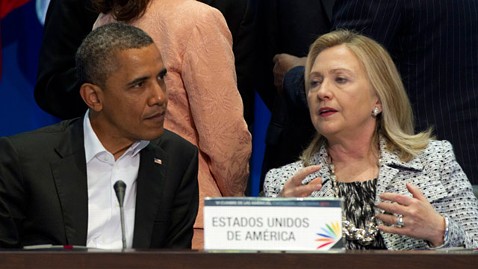The jackpot for Wednesday's Powerball drawing now stands at $425 million -- the richest Powerball pot ever -- and it's likely to get even sweeter.
"Back in January, we moved Powerball from being a $1 game to $2," says Mary Neubauer, a spokeswoman for the Iowa lottery. "We thought at the time that this would mean bigger and faster-growing jackpots."
It's proved true. The total, she says, "has been taking huge jumps -- another $100 million since Saturday." (The most recent drawing, on Saturday night, produced no winning numbers.)
Until now, the biggest Powerball pot on record -- $365 million -- was won in 2006 by eight Lincoln, Neb., co-workers.
In Photos: Biggest Lotto Jackpot Winners
Lottery officials in Iowa, where Powerball is headquartered, have started getting phone calls from all around the world. "When it gets this big," says Neubauer, "we start getting inquiries from Canada and Europe from people wanting to know if they can buy a ticket. They ask if they can FedEx us the money."
Don Smith/The Record (Bergen County)/AP Photo
Powerball Drawing No Winner; Jackpot Grows to $425 Million Watch Video
Powerball Fever: Millions Chase the Chance to Hit Jackpot Watch Video
The answer she has to give them, she says, is: "Sorry, no. You have to buy a ticket in a member state from a licensed retail location."
About 80 percent of players don't choose their own Powerball number, opting instead for a computer-generated one.
Asked if there's anything players can do to improve their odds of winning, Neubauer says no -- apart from buying a ticket, of course.
Lottery officials put the odds of winning Wednesday's Powerball pot at one in 175 million, meaning you are 25 times more likely to win an Academy Award.
Skip Garibaldi, a professor of mathematics at Emory University in Atlanta, provides additional perspective: You are three times more likely to die from a falling coconut, he says; seven times more likely to die from fireworks, "and way more likely to die from flesh-eating bacteria" (115 fatalities a year) than you are to win the Powerball lottery.
Segueing, then, from death to life, Garibaldi notes that even the best physicians, equipped with the most up-to-date equipment, can't predict the timing of a child's birth with much accuracy.
"But let's suppose, however, that your doctor managed to predict the day, the hour, the minute and the second your baby would be born," Garibaldi says. The doctor's uncanny prediction would be "at least 100 times" more likely than your winning Wednesday.
Even though he knows the odds all too well, Garibaldi says he'll usually play the lottery. "When it gets this big, I'll buy a couple of tickets. It's kind of exciting. You get this feeling of anticipation. You get to think about the fantasy."
So will he be purchasing two tickets for Wednesday's Powerball? "I can't," he tells ABC News. "I'm in California" -- one of eight states that doesn't offer Powerball.










